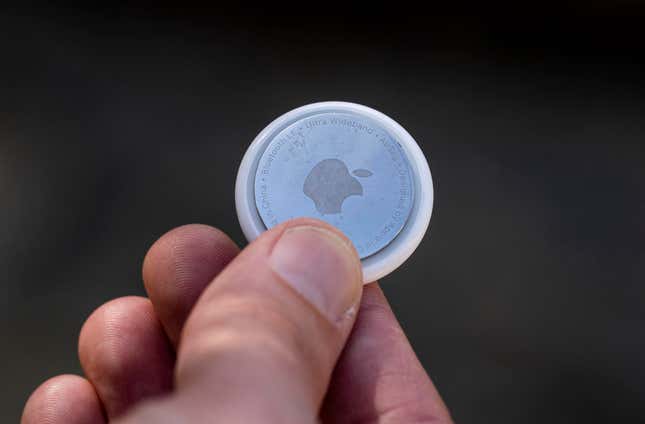Two Women Sue Apple After Their Exes Used AirTags to Stalk Them
The suit against the tech giant comes after years of stalking allegations from women across the U.S. and warnings from tech and women's safety advocates.
NewsPolitics

Two women have filed a class action lawsuit against Apple after making the grim discovery that their former partners were using AirTags to track their locations. The suit was preceded by countless cases of women reporting that they, too, were being stalked by their exes via the $29 device, and innumerable warnings from ethical tech and women’s safety advocates.
In the new suit, one named plaintiff, Lauren Hughes, alleged that her ex-boyfriend placed an AirTag in her car tire’s wheel in an effort to learn where she’d moved to avoid him following their breakup. Her ex, she alleged, made efforts to disguise it by coloring it with a sharpie marker and tying it in a plastic bag. He soon began using the device to taunt her—even going so far as to post a photo of a taco truck from her new neighborhood and posting it online alongside a winking emoji and the hashtag “#airt2.0.”
-

-

-

-

-

-

-

-

-

-

-

-

-

-

-

-

-

-

-

-

-

-

-

-

-

-

-

-

-

-

-

-

-

-

-

-

-

-

-

-








































